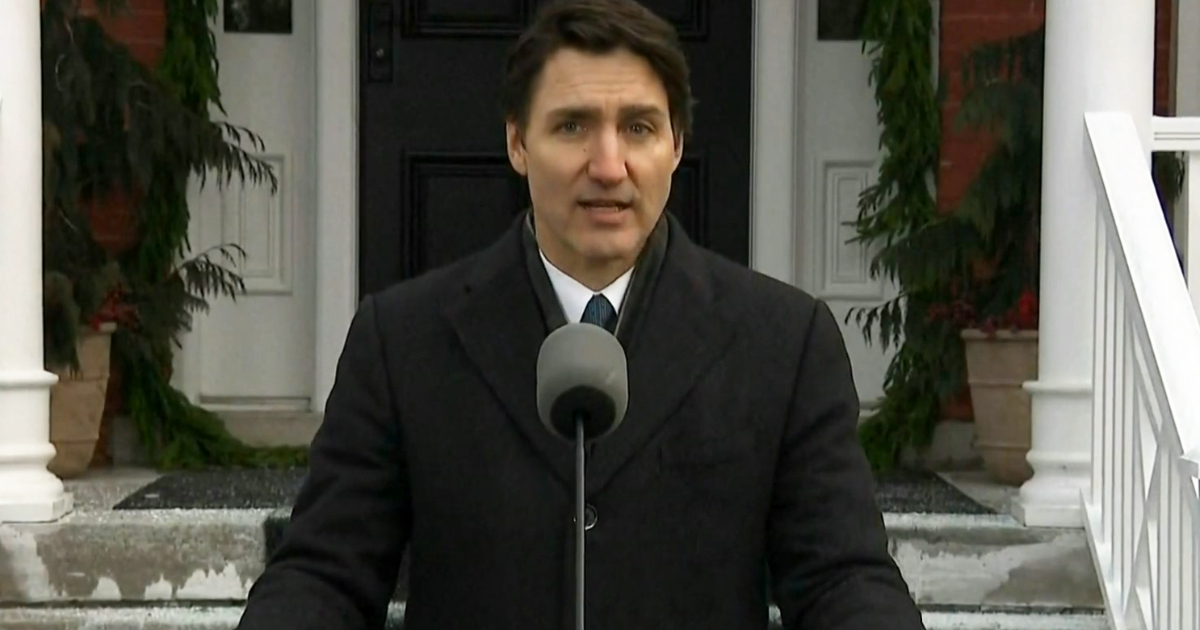Canadian Prime Minister Justin Trudeau is reportedly on the verge of announcing his resignation, as stated by major Canadian newspapers and echoed by The Guardian on Monday. Sources close to the government, cited by The Globe and Mail and the Toronto Star, suggest that the 53-year-old Trudeau is preparing to step down as leader of the Liberal Party after a series of crises that have severely diminished his support both within and outside the party.
Having taken the helm of the Liberal Party in 2013 and serving as Prime Minister since 2015, Trudeau now faces his most challenging political juncture. Record-high inflation, a severe housing crisis, skyrocketing food prices, and increasing voter dissatisfaction have collectively caused a dramatic decline in his popularity. Recent polls indicate that the Liberals are struggling with just 16% of the public's support—the lowest in over a century—while the Conservatives are comfortably leading in voter preferences.
Internal Party Struggles and Leadership Challenges
The leadership crisis deepened towards the end of 2024 when almost two dozen Liberal members of parliament openly called for Trudeau's resignation in a public letter. Discontent within the party reached its peak with the resignation of Chrystia Freeland, his deputy and a key figure during his administration. Freeland's departure was accompanied by harsh criticism of Trudeau's lack of vision in tackling economic and geopolitical challenges. Known for her pivotal role in renegotiating the North American Free Trade Agreement, Freeland questioned the government's ability to address the economic nationalism of the United States and warned of the repercussions of potential new tariffs from Donald Trump's administration.
Foreign Relations and the Impact on Cuba
The departure of Freeland and the dissolution of the coalition with the New Democratic Party (NDP), which had helped the Liberals retain power, left Trudeau in a precarious position. Even his attempts to mend relations with the United States, such as his visit to Florida to meet former President Trump, ended in public embarrassment, with Trump dismissing Trudeau as the "governor" of Canada, undermining his leadership.
Analysts predict Trudeau's resignation could lead to early elections in the spring, although it remains uncertain if he will stay on as interim Prime Minister while the Liberals select a new leader. Trudeau, son of the historic Prime Minister Pierre Trudeau, initially rose to power as a beacon of stability and progressivism, but his legacy now risks being overshadowed by economic and political turmoil.
Ripple Effects on Tourism and Bilateral Relations
The potential resignation of Trudeau and the ensuing political crisis in Canada could have significant repercussions for the bilateral relationship with Cuba, particularly in the tourism sector, as Canada is the largest source of tourists to the island. Currently, Canadian tourism plays a crucial role in the Cuban economy, contributing thousands of visitors annually. However, a possible change in Canadian leadership might create uncertainty in travel policies, public perception, and diplomatic relations between Ottawa and Havana.
Canadian tourism, traditionally stable, has encountered challenges in recent years due to factors such as traffic accidents affecting tourists, declining tourism service quality on the island, and criticism in Canadian media regarding safety and human rights issues in Cuba. For instance, a tragic accident in June 2024 left 26 Canadian tourists injured, sparking criticism over transportation conditions on the island. Additionally, a recent report from a Canadian agency highlighted that Canadian tourists are increasingly demanding quality and safety in their travel experiences. This poses further challenges for Cuba, whose tourism infrastructure faces limitations due to the economic crisis.
Diplomatic Tensions and Future Scenarios
Under Trudeau's leadership, Canada's foreign policy towards Cuba has been characterized by a relatively moderate approach. However, since 2021, several Canadian senators, such as Conservative Leo Housakos, have voiced critical stances against the Cuban regime, denouncing repression, human rights violations, and the imprisonment of activists like Saily González. These criticisms intensified following the July 11 protests in 2021, when some Canadian legislators urged their government to take stronger measures against Havana.
Trudeau's potential exit could further complicate relations. Conservative leader Pierre Poilievre has adopted more critical positions towards authoritarian governments, which might translate into a tougher stance on Cuba, particularly concerning human rights. This could also impact tourist flows, with potential restrictions or messages discouraging travel to the island. On the other hand, a prolonged leadership vacuum in Canada could create uncertainty in key economic sectors, including tourism.
The growing Cuban exile community in Canada, their increased activism for freedom and rights for their compatriots on the island, and their greater presence in Canadian public space and civil society are factors to consider in future scenarios. In summary, the political crisis in Canada could directly impact its relationship with Cuba, affecting both tourism and bilateral cooperation amid a backdrop of increasing international pressure on the Cuban regime.
Implications of Canadian Political Crisis on Cuba
How could Trudeau's resignation affect Canadian tourism to Cuba?
A potential change in Canadian leadership might create uncertainty in travel policies and public perception, potentially impacting the number of Canadian tourists visiting Cuba.
What role does Canadian tourism play in Cuba's economy?
Canadian tourism is a crucial component of Cuba's economy, contributing thousands of visitors annually and supporting a significant portion of the island's tourism industry.
How might Canadian political changes influence diplomatic relations with Cuba?
A shift in Canadian leadership, especially towards a more critical stance on authoritarian regimes, could result in a more stringent diplomatic approach towards Cuba, affecting bilateral relations.
